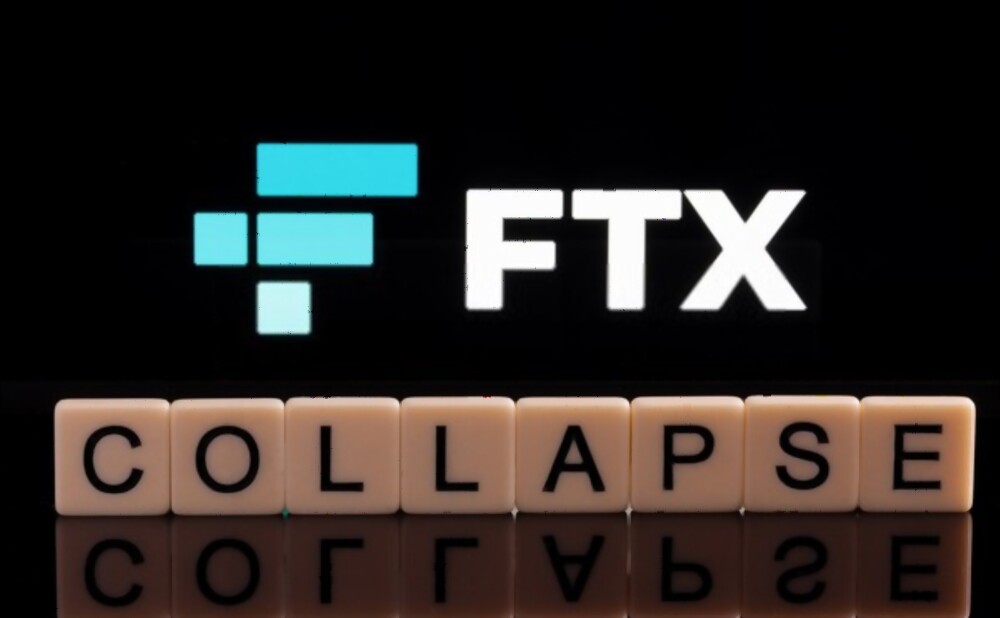By Sabrina Eaton, cleveland.com (TNS)
The U.S. Senate Committee on Banking, Housing, and Urban Affairs on Wednesday weighed whether the high-profile failure of the FTX cryptocurrency exchange and the arrest of its former chief executive amounted to fraud by a rogue company or evidence that digital currencies are nothing more than a Ponzi scheme.
Chairman Sherrod Brown of Ohio compared former FTX CEO Sam Bankman-Fried, who has been charged with fraud and money laundering, to disgraced financier Bernie Madoff, who defrauded investors out of billions of dollars. Brown likened cryptocurrency investments to the trade in risky mortgage bonds and over-the-counter derivatives that triggered a financial crisis in 2007.
Cryptocurrency has made it easier for scammers to steal money and “ushered in a whole new dimension of fraud and threats to national security that support dangerous nation-states, embolden criminals, and finance terrorists,” Brown said.
For example, he said North Korea uses cryptocurrency stolen in hacks to finance its ballistic missile programs. Human traffickers, drug cartels and gunrunners also use it to launder their proceeds and some of that money ends up bankrolling terrorists bent on undermining the United States, said Brown.
“Crypto doesn’t get a free pass because it’s bright and shiny,” said Brown, who has asked the Treasury Department to work with him on coming up with regulations for the sector. “Or because venture capitalists think it might change the world. Or its TV ads campaigns were witty and featured celebrities. Especially when so many consumers are at risk of losing their hard-earned money.”
Cryptocurrencies are not backed by governments, banks or other institutions. Their ownership is tracked through decentralized networks based on blockchain technology. There are thousands of different types of cryptocurrency, and their values can fluctuate dramatically. Hackers have stolen billions of dollars in the digital funds.
The committee’s top Republican, Pennsylvania Sen. Patrick Toomey, said law enforcement should investigate FTX’s unauthorized lending of customer assets to an affiliated entity and its fraudulent promises to investors and customers. But he said cryptocurrencies themselves were not to blame for FTX’s failures and warned against banning them.
“I hope we’re able to separate the likely illegal actions from perfectly lawful and innovative cryptocurrencies,” said Toomey. “The 2008 financial crisis involved obvious misuse of products related to mortgages. Did we decide to ban mortgages? Of course not.”
Kevin O’Leary, a private equity and venture investor who chairs an ETF indexing firm called O’Shares, told the committee he thinks cryptocurrencies, blockchain technology and digital payment systems will become an established part of investing over the next decade. Although he lost tens of millions of dollars in the collapse of FTX, for whom he was a paid spokesperson, he said he retains faith in the sector.
He predicted the technologies behind cryptocurrency will disrupt the existing financial services sector with faster, more efficient, more productive and more secure ways of investing, paying, transferring and tracking assets. If properly regulated and implemented, he said they’ll make the entire American economy more competitive and productive. He described the FTX collapse as a “nascent industry culling its herd” and said he hopes it will renew the government’s focus on establishing regulations for the sector that will help it attract more investment and talent.
“The collapse of FTX is nothing new,” said O’Leary. “While this situation is painful for shareholders, employees and account holders, in the long run, it does not change this industry’s promise. Enron came and went and had no impact on the energy markets. Bear Stearns and Lehman Brothers demise had no impact on the long term potential of American debt and equity markets.”
But Hilary Allen, an American University law professor who wrote a book called “Driverless Finance: Fintech’s Impact on Financial Stability,” said FTX’s failure is symptomatic of many broader problems in the crypto industry. She said its demise and that of other companies in the industry like Celsius and Terra Luna are largely because “crypto assets can be made up out of thin air.”
“The whole industry itself is basically an asset class built out of nothing,” she said. “It trades entirely based on people’s belief that it can be worth something but the technology has not worked for a payments mechanism. It’s become a speculative instrument.”
She said Bankman-Fried’s embezzlement was facilitated because crypto is “shrouded in opacity and complexity.” She suggested that banning cryptocurrency would be the “most straightforward way of protecting both investors and the financial system. She equated relying on the industry to improve access to financial services to a policy of opening more casinos in underserved communities.
“If policymakers don’t wish to proceed with the ban, they will need to be careful to ensure that any laws that they do adopt, don’t inadvertently make crypto too big to fail,” said Allen. “Crypto should not be regulated like banking products because that would give crypto access to the government support that we afford to banking because of its critical role in providing credit and processing payments for the broader economy. Banking regulation should, however, continue to keep actual banks away from crypto.”
_____
©2022 Advance Local Media LLC. Visit cleveland.com. Distributed by Tribune Content Agency LLC.
Thanks for reading CPA Practice Advisor!
Subscribe Already registered? Log In
Need more information? Read the FAQs
Tags: Digital Currency




